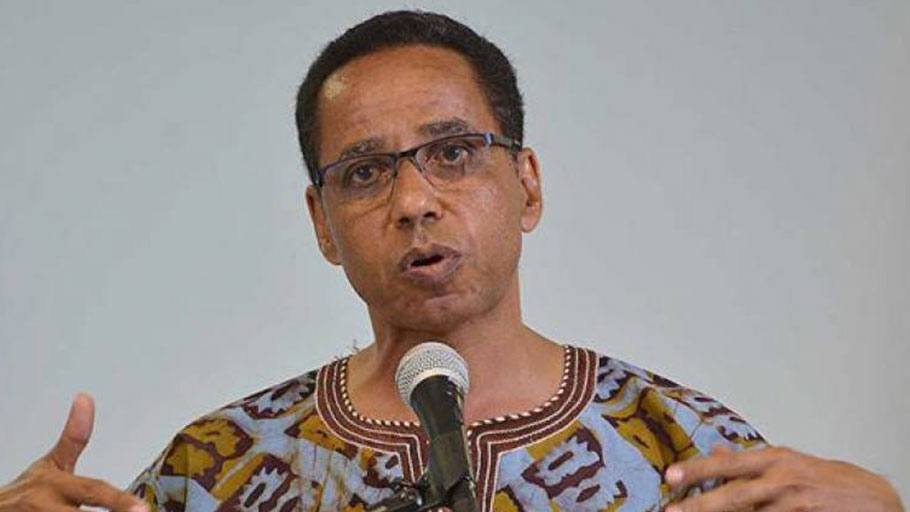We Must foster an “Ideology of Regionalism” in the Consciousness of our Caribbean People
By David Comissiong
Ambassador to CARICOM
I have just completed one year’s service as Barbados’ Ambassador to the Caribbean Community (CARICOM), and one of the key insights I have garnered is that the development of an ideology or philosophy of “Regionalism” in the consciousness of our Caribbean people is absolutely critical for the further advancement of our Caribbean integration project.
It has also become clear to me that if such a goal is to be achieved, it will require systematic and wide-spread public education about the existence, role and positive contributions of ALL of the Institutions of CARICOM, the Associate Institutions of CARICOM, and the Institutions that are in a functional cooperation relationship with CARICOM.
It seems to me that the very heart, soul and substance of our Caribbean integration Movement/Caribbean Community (CARICOM) is to be found in the 25 or so Institutions and Associate Institutions of CARICOM – and particularly in the critical work that they perform for the Caribbean people on a daily basis.
But unfortunately, many of our Caribbean people are unaware of the very existence of our Institutions and Associate Institutions; or even when they are aware of the Institution’s existence, they are often unaware of the concrete work it is doing and the contribution it is making to the welfare of our region and its people.
(This perhaps explains why as first class an institution as the Caribbean Court of Justice (CCJ) has not been able to gain acceptance by the electorates in several CARICOM member states.)
And then there is also the problem of our people knowing about the institution and appreciating the valuableness of its work, but somehow not making a connection between the institution and our Caribbean Community (CARICOM)/Caribbean integration Movement. Examples of such institutions would be the University of the West Indies (UWI), the Caribbean Development Bank (CDB), the Caribbean Disaster Emergency Management Agency (CDEMA) and the Caribbean Examinations Council (CXC).
In light of the foregoing, I have come to strongly believe that a key function of each and every Institution or Associate Institution of CARICOM must be the undertaking of a systematic outreach and education programme to the masses of the Caribbean people – to consistently inform and educate our people about the existence, role, contributions and achievements of the Institution or Associate Institution, and to impress upon them that the Institution is connected to CARICOM and is part of our Caribbean integration Movement.
Such a public education function should not be treated by the Institution as something that is secondary or optional! Rather, it should be regarded as an indispensable part of the Institution’s mission, since the long-term survival and flourishing of the Institution is ultimately dependent on our people developing an overall commitment to Regionalism and an appreciation of the work and value of our Institutions and Associate Institutions.
I am certain – for example – that if the Caribbean Court of Justice (CCJ) was to embrace the notion that its mission is not only to operate a regional court system and to dispense justice, but to ALSO systematically inform and educate the Caribbean people about the CCJ’s genesis, structure, work and achievements, that CARICOM governments would have little difficulty in persuading their electorates to vote for adoption of this excellent Caribbean institution as their final Court of Appeal.
I am therefore making a Call for every single CARICOM Institution, Associate Institution and Functional Cooperation Institution to build into their institutional structure, and to devote human and financial resources to, a programme of systematic public education about the existence, role and contributions of the Institution, and also about the fact that the Institution is connected to CARICOM and to our Caribbean integration Movement.
This Call therefore goes out to the following:
Institutions of CARICOM
- Caribbean Agricultural Development Institute (CARDI)
- Caribbean Aviation Safety and Security Oversight System (CASSOS)
- Caribbean Centre for Renewable Energy and Energy Efficiency (CCREEE)
- Caribbean Community Climate Change Centre (CCCCC)
- Caribbean Examinations Council (CXC)
- Caribbean Agricultural Health and Food Safety Agency (CAHFSA)
- Caribbean Centre for Development Administration (CARICAD)
- Caribbean Court of Justice (CCJ)
- Caribbean Meteorological Organization (CMO)
- Caribbean Public Health Agency (CARPHA)
- Caribbean Disaster Emergency Management Agency (CDEMA)
- Caribbean Regional Fisheries Mechanism (CRFM)
- Caribbean Telecommunications Union (CTU)
- CARICOM Competition Commission (CCC)
- CARICOM Development Fund (CDF)
- CARICOM Implementing Agency for Crime and Security (IMPACS)
- CARICOM Regional Organization for Standards and Quality (CROSQ)
- Caribbean Institute for Meteorology and Hydrology (CIMH)
Associate Institutions of CARICOM
- Caribbean Development Bank (CDB)
- University of the West Indies (UWI)
- University of Guyana (UG)
- Caribbean Congress of Labour (CCL)
- Caribbean Private Sector Organization (PSO)
- Secretariat of the Organization of Caribbean States
- Caribbean Law Institute Centre (CLIC)
Functional Cooperation Institutions of CARICOM
- Caribbean Export and Investment Agency (Carib-Export)
- Caribbean Tourism Organization (CTO)
- Council of Legal Education (CLE)
- Caribbean Organization of Tax Administrators
Our Caribbean Community (CARICOM)/Caribbean integration Movement has a scope, depth and purpose that is truly impressive! And I merely wish to publicly urge all of our regional institutions to play their part in helping to make our people more aware and conscious of this, for it is by so doing that we will foster that all important ideology or philosophy of Regionalism.















